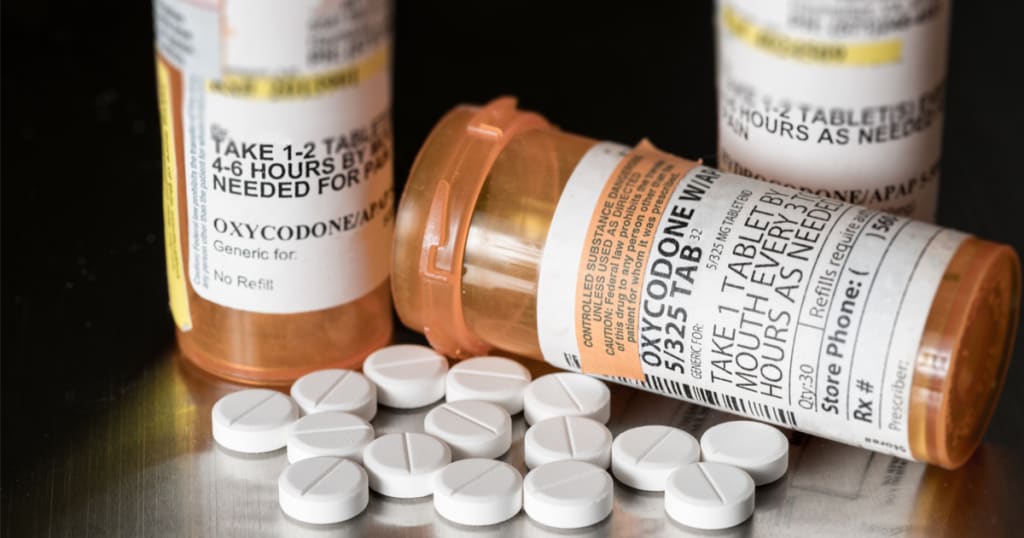Disease Mongering: The Values of the Modern Healthcare Industry
Isn't the purpose of healthcare to care for your health?

(OCT 7th, 2017)—There are a few things that every American ought to be aware of, and among those is the knowledge that numbers do not lie. In addition,, there are a few things that the government should be aware of as well, dangers to the safety and security of it citizens are among the most important. When senators pledge to uphold our rights, they do so from threats both foreign and domestic. In the past, domestic threats to our life, liberty, and pursuit of happiness came from places such as “Avarice, ambition, revenge, or gallantry,” according to John Adams. But more recently, some of these domestic threats seem to come to us from very unlikely places. Most would rather not admit it, but those who are most involved in healthcare and whose opinion we are lead to trust (read: doctors) are partly the reason we are facing the issue of excessive deaths due to prescription opiate abuse, in addition to things such as the commercialization of healthcare and the huge price tag now associated with concepts such as universal healthcare. Although, as we stated before the most important thing is that this issue isn’t infringing on our basic rights... right?
Well, in the 15 year span from 1999 to 2014, almost half of all overdose deaths resulted from legal prescription medications. In that span, opiate overdoses increased fourfold. Oh, and let’s not forget the time that a doctor in Indiana was hunted from his office and shot dead in a parking lot just because he wouldn’t write a prescription. While it is difficult to stomach the veracity of these issues, nonetheless they require immediate legislative action on the part of local and federal bodies to rein in the issue before more people fall victim to overmedication. We have constitutionally mandated right to pursue happiness, and seeing most of our neighbors drop dead from overdosing on what should be justly prescribed medication definitely begins to encroach upon that right.
Reports from the Center for Disease Control (CDC) state explicitly that “Past misuse of prescription opioids is the strongest risk factor for heroin initiation and use—especially among people who became dependent upon or abused prescription opioids in the past year.” Meanwhile, pharmaceutical companies sit back and are commercializing these ordeals, emphasizing not the health of the patient but rather the success of the drug and the money those who market it will make. These types of marketing techniques ensure that doctors prescribe far too often, enough so that in 2012 there were so many prescriptions on the market that there was enough for every American adult to have a bottle of pills. To reiterate, numbers do not lie, they are not mistaken. These are real and present dangers to the average American family. Most of the data was sourced from our very own government, recordings of the official accounts of domestic violence against constitutionality.
There are logical legislative answers to this issue, beginning with restricting the marketing of pharmaceuticals the very same way we restrict the marketing of goods such as alcohol and tobacco: with a vested interest in the continued physical health and independence of the consumer. These companies have shown that rather than valuing the health of the consumer, they care more about the development of their brand. Rather than raise funds to help those who fall victim to opiate abuse after failed attempts to medicate pain effectively, these companies would rather sell you their product and let you deal with the effects of addiction on your own. Until changes are made, prescription rates will continue to be among the highest in the developed world and this issue will only continue to worsen.
Furthermore, actions such as increased legislative attention towards those who can legally prescribe these medications and other legislative actions such as Good Samaritan laws (as espoused by the National Conference of State Legislatures) are wholehearted efforts towards proper government intervention. In addition to national recognition of the issue, efforts such as these help to make the country a safer, healthier place for the rest of us. Even those who may never need pain medication will undoubtedly benefit from the lack of violence and decrease in per capita illicit drug consumption and overdose. In August 2016, US Surgeon General Vivek Murphy said that, “Nearly two decades ago, we were encouraged to be more aggressive about treating pain, often without enough training and support to do so safely. This coincided with heavy marketing of opioids to doctors. Many of us were even taught—incorrectly—that opioids are not addictive when prescribed for legitimate pain.” Now more than ever, doctors need the proper insight before offering their patients potentially life-endangering pharmaceuticals.
Particularly in the last year alone, law enforcement agencies from across the United States are also finding an increase in the illicit manufacturing and abuse of drugs such as fentanyl (which can be 50 to 100 times stronger than morphine). Even incredibly underwhelming amounts can be lethal: just a few dozen specks, smaller than average rock salt, is enough to stop the heart of most users. The issue is so prevalent in the average American city that even public servants such as librarians are being taught as first-responders to overdoses, mostly because addicts are often found attempting to use their substances in the library’s public bathrooms. Chera Kowalski, a librarian in Philadelphia, spoke about her experience to NPR’s Scott Simon in June of this year: “The way I've always thought of libraries are a responsive space that responds to the community needs. And in the situation that we're in one of the needs are we have to help people who may be engaging in behaviors not many are comfortable with. And when [someone is] overdosing, that's a need... ”
Conclusion
I’m incredibly thankful that everyday citizens such as Chera Kowalski are able to respond to the needs of our community even when our lawmakers cannot. With a yearly death toll which totals almost 60,000 of our family and friends each year, the lack of accountability many public representatives enforce in the healthcare industry has become a danger to our public health. We must act now, before this alarming trend tightens its ever-increasing grip on the throat of American people. Please, contact your local representatives and let them know that you refuse to consent to the deaths of your family and friends at the hands of irresponsible abuse of prescribed opiates. Your healthcare provider ought to care for your health, and if they don’t... then who is?
About the Creator
Jonathan Moore
My works are available as either commissioned pieces, or if enjoy the topic enough I am known for my pro bono work! Also, feel free to contact me at [email protected] for any other questions, comments, or criticisms.






Comments
There are no comments for this story
Be the first to respond and start the conversation.